Stories

News & Analysis
The Role of Investigative Journalism in Armenia’s Velvet Revolution
This year’s Armenian Revolution saw thousands take to the streets for almost two weeks to protest then-prime minister Serzh Sargsyan and his government. Journalists in the country say that it wasn’t one story that triggered the people’s ire against Sargsyan’s rule but the cumulative investigative coverage over the years.

News & Analysis
A Billion-Dollar Fine: The Case for Saudi Reparations to the World’s Journalists
For there to be real justice in the case of Jamal Khashoggi, the penalty the Saudis pay must transcend time, place and person, and positively advance the cause of journalism and rights of free speech for generations to come, not just achieve criminal convictions, visa restrictions and economic sanctions. Citizen activist Chuck Fall proposes how that might look.

News & Analysis
IndonesiaLeaks: Officials Attack First Investigative Report From Whistleblower Platform
Top officials in Indonesia are dismissing the first collaborative investigative report from IndonesiaLeaks, which was released earlier this month. The report, which implicated a top police official in a bribery case, has resulted in a massive social media campaign aimed at discrediting the investigation, while one of the group’s media partners was hit by a denial of service attack, knocking it offline for several hours.
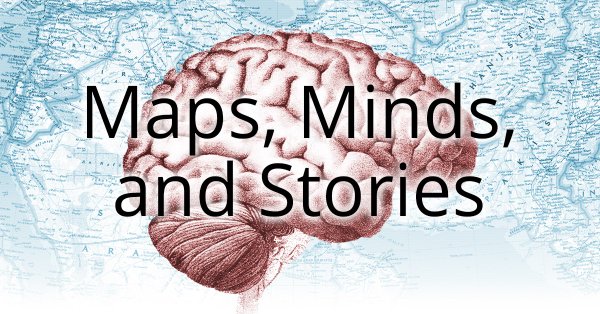
Data Journalism
GIJN’s Data Journalism Top 10: Stories with Maps, Tools with Charts, Casting for Shakespeare
What’s the global data journalism community tweeting about this week? Our NodeXL #ddj mapping from October 15 to 21 finds @Esri’s @AllenCarroll talking the power of maps in storytelling, @visualizingdata’s catalogue of charts and corresponding tools to help information designers, and @ericwilliamlin’s deep dive into the data of casting decisions in Shakespearean plays since the 1900s.

White Noise, Damn Lies, Deep Fakes and What Really Scares Craig Silverman
Craig Silverman had been digging into unhappy facts for years. But back in 2015, he came out with a report which would foretell the misinformation tsunami which would soon arrive. Tanya Pampalone, GIJN’s managing editor, caught up with Silverman, who is now the Toronto-based media editor for BuzzFeed News, to talk more about disinformation, as well as white noise, Hurricane Sandy, the Arab Spring, his first blog and what it is like to be the most depressing person in the room.

Reporting Tools & Tips
Considering a Collaborative Reporting Project? Here are 8 Lessons From 6 Projects
Pick your collaborators like you pick your friends, if you can help it — trust is critical. Center for Cooperative Media at Montclair State University funded six collaborative reporting projects across the United States and gathered some of the lessons learned and main takeaways for other media considering collaborative reporting projects.

Reporting Tools & Tips
4 Digital Security Tips Every Journalist Needs to Know
With daily headlines about massive data hacks, everyone should be worried about digital security. But investigative journalists may even be deliberately targeted. Digital security expert Chris Walker shared his top tips.

Data Journalism
GIJN’s Data Journalism Top 10: New York’s Luxury Homes, Climate Dangers, Inspiring Data Viz
What’s the global data journalism community tweeting about this week? Our NodeXL #ddj mapping from Oct 8 to 14 finds 25 inspirational data visualizations collated by @VismeApp, a @nytimes op-ed by climate scientists warning of the future dangers of heat and humidity combined, @FT maps of New York’s glut of luxury residences and @ejcnet with veteran data journalists on web scraping.

GIJN Welcomes 10 New Member Groups from 9 Countries
The Global Investigative Journalism Network is delighted to welcome 10 new member organizations. We are particularly pleased to welcome for the first time groups from France, Tanzania and Zimbabwe. The new members include strong investigative media in Philippines, Republic of Moldova, Ukraine and USA, funding organizations in Tanzania, USA and Zimbabwe, and training organizations in France and Russia.
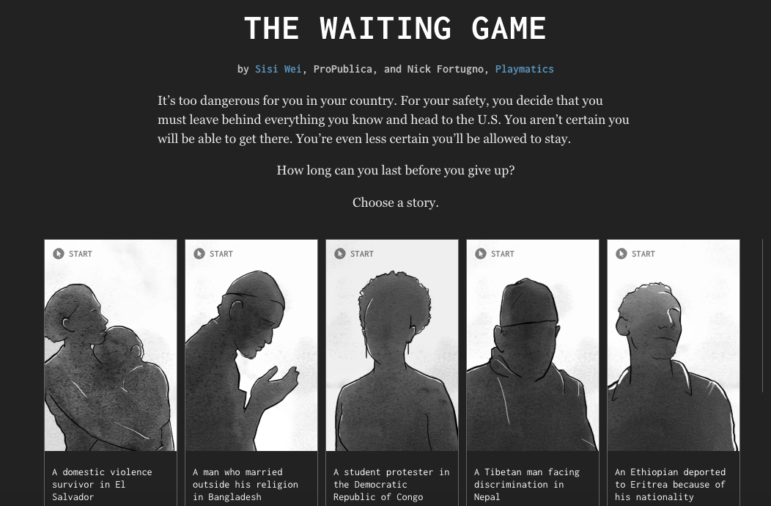
Case Studies
How ProPublica Used a Game to Tell Stories of Five Immigrants Seeking Asylum
Video games and journalism have had a history — the melding of the two has been less successful in breaking news because of the fast turnaround. However, it has seen more successes in longer investigations that take more time to develop. ProPublica’s Sisi Wei shares the process behind the unit’s gamification of five asylum seekers’ stories.

News & Analysis
3 Investigative Podcasts You Need in Your Life
Since the launch of Serial in 2014, podcast popularity has soared. And an increasing number of investigative journalists have begun aiming for ears as well as eyeballs. At the Uncovering Asia 2018 conference in Seoul, sound experts shared their recommendations on must-hear investigative storytelling.

Reporting Tools & Tips
How to Track Chinese Business Around the World
Want to track what Chinese businesses — big or small — are up to in Africa, Europe and Southeast Asia? These tips from reporters from The New York Times, The Guardian and The South China Morning Post will help.

Don’t Miss These Investigative Journalism Tipsheets
If you didn’t make it to Seoul for this year’s Uncovering Asia conference — or couldn’t be at two panels at the same time — never fear, tipsheets from our impressive speakers are here! But just in case you can’t decide where to start, here are five presentations that are definitely worth checking out.

Uncovering Asia: Highlights of #IJAsia18
The completely sold out Uncovering Asia 2018, the third Asian investigative journalism conference, was a four-day blitz of intense exchange of knowledge, networking and building new investigative partnerships. A total of 440 journalists from 48 countries convened in Seoul, Korea from October 4-7 for the largest ever gathering of investigative journalists in the region.

Free Wa Lone and Kyaw Soe Oo: Investigative Journalists in Asia Endorse Call to Free Jailed Reporters
Journalists at the Third Asian Investigative Journalism Conference today strongly endorsed a call for governments worldwide to free imprisoned journalists. In particular, they urged the government of Myanmar and its civilian leader Aung San Suu Kyi to immediately and unconditionally release two Reuters reporters Wa Lone and Kyaw Soe Oo.
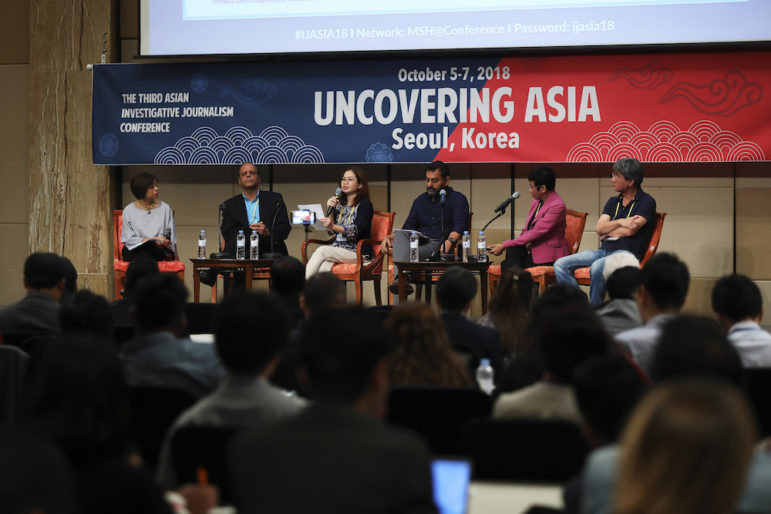
Asia’s Muckrakers: Under Threat, But Fighting Back
Nearly 440 investigative and data journalists from across Asia convened in Seoul, South Korea this morning — the largest ever gathering of investigative journalists in the region. The conference kicked off with discussions about how the profession is under threat in the region.

News & Analysis
Journalists and True Crime: The Best Narrative Nonfiction Crime Books by Reporters
Investigative reporter and author Hank Phillippi Ryan rounded up nine of her favourite narrative nonfiction true crime books, from Truman Capote’s In Cold Blood to Janet Malcolm’s The Journalist and the Murder.

News & Analysis
Want to Change How Investigative Journalism is Done in Africa? Here are 14 Recommendations
More than 10 years ago, the first nonprofit investigative journalism organization in Africa was established. More than 20 countries throughout the continent now have similar units. What are the motivating factors behind the proliferation of these organizations on the continent? Who is funding them and how? And are these organizations making an impact in Africa? Ntibinyane Ntibinyane rounded up 14 recommendations for GIJN based on his recent study for the Reuters Institute at Oxford University.

Reporting Tools & Tips
Want to Track the Pentagon’s Funding? Here’s How You Can Follow the Money
Hundreds of billions of dollars flow from the US government to contractors around the world, but knowing how to dig into these contracts can be daunting. Here’s Michael Morisy from MuckRock with tips on how to dig in.
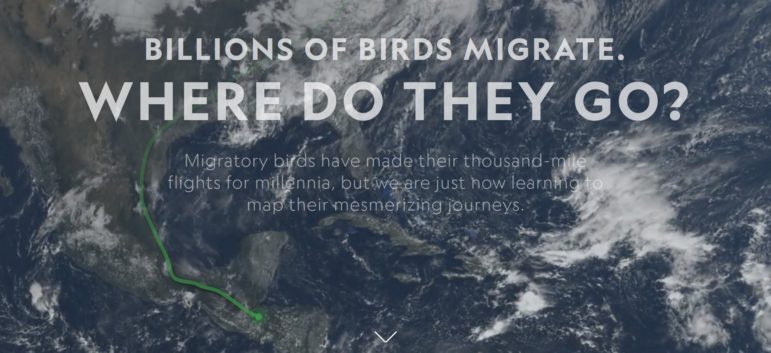
Data Journalism
GIJN’s Data Journalism Top 10: Useful Chatbots, Less-Is-More Tables and Data Mapping Billions of Birds
What’s the global data journalism community tweeting about this week? Our NodeXL #ddj mapping from Sept 17 to 23 finds numerous data to map, from @NatGeo’s migration of billions of birds to @morgenpost’s Berlin schools and @A24COM’s internet access in Argentina. There’s also @dhanalytics’ tips on improving data tables and @mcrosasb on two useful chatbots.
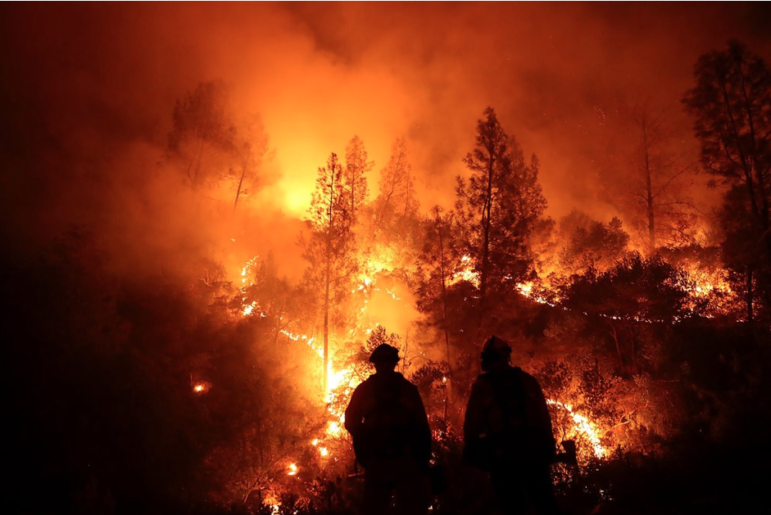
Reporting Tools & Tips
8 Ways Journalists Visualized California’s Out-of-Control Wildfires
California officials and firefighters are becoming increasingly concerned that the drier, windier conditions spurred on by the warming climate will make wildfires more devastating and their seasons longer. But are enough people paying attention to their root causes and dire consequences? Here are eight ways US journalists have been chronicling this year’s wildfires.

Reporting Tools & Tips
5 Tools for Professional Looking Infographics for the Non-Designer
For newsrooms that want to produce professional looking infographics but don’t have the technical skills or budget to hire a professional, Kat Duncan came up with five user-friendly tools to help you create neat looking infographics without worrying about too much coding.

News & Analysis
Were the Gupta Leaks South Africa’s Watergate?
The biggest story since the end of apartheid helped bring down a president. But a year on, its effect on South African journalism has been less clear. Jon Allsop filed this report from Cape Town for GIJN.

Data Journalism
GIJN’s Data Journalism Top 10: Sad Tunes Algorithm, Fragapane’s Beautiful Dataviz, African Pay Gap, Euro-Xenophobia
What’s the global data journalism community tweeting about this week? Our NodeXL #ddj mapping from Sept 10 to 16 finds @miriamquick analyzing @Spotify data to rank the top five saddest songs, @Code4Africa creates a tool to measure gender pay gap in African countries, @fedfragapane shares beautiful illustrations on Instagram, #edjnet finds Italy, Turkey and Greece topping the list of Europe’s xenophobic countries, and @TaylorMirf highlights the low rates of immunizations in Washington state.

Journalism Needs to Reinvent Itself: A Q&A with OSF’s Maria Teresa Ronderos
The ever-evolving threats to media freedom and independence worldwide is challenging journalism to redefine itself and find ways to survive. Open Society Foundations’ Maria Teresa Ronderos talks about how journalism needs to reinvent itself and maintain its relevance in today’s society.

Case Studies
How #MeToo China Inspired a User-Generated Model of Investigative Journalism
As the Chinese Communist Party tightens its grip on the news media, investigative journalism has suffered a heavy toll, disappearing from China’s newsrooms. But the recent outpouring of #MeToo reporting in China has signaled the emergence of a new genre of investigative journalism. One that is marked by a wave of user-generated content, with professional journalists serving as aggregators and fact-checkers, in addition to performing traditional reporting tasks such as deep reporting and writing.

Reporting Tools & Tips
How to Start Your Own Media Newsletter
Your newsletter mailing list is made up of real people who have allowed you into some of the most prime real estate in the world: their inbox, and this privilege should not be abused. Splice Newsroom offers their tips to offer your subscribers quality content.
